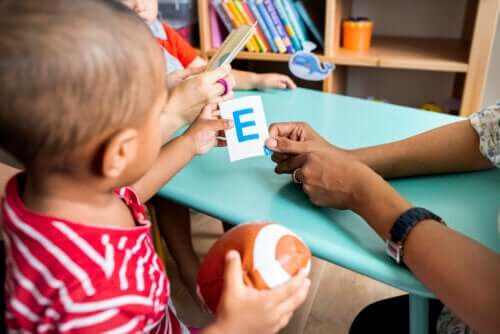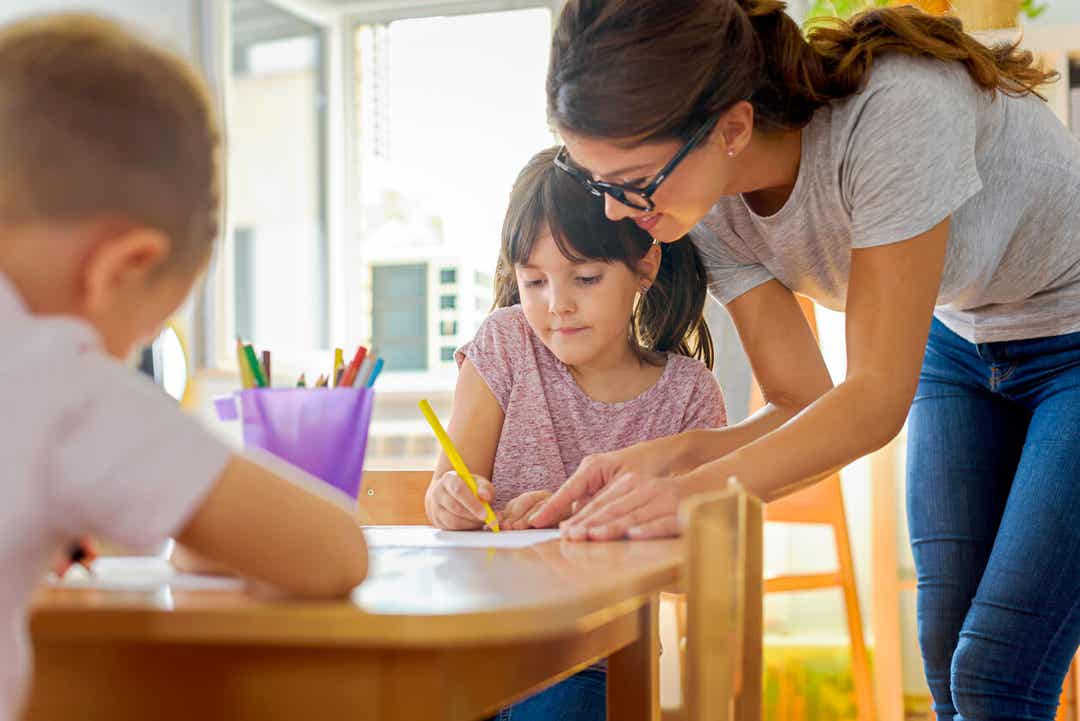What is Pediatric Neuropsychopedagogy?

Surely, you must have heard the word neurosciences or child brain development, especially when you’re looking for information to support your child in their development. Would you like to know some key ideas from the field of pediatric neuropsychopedagogy? Find out in the following paragraph!
Neurosciences
When you hear or read an article that includes the prefix neuro, you should remember the word neurology. Since historical times, this field has had to do with the study of the nervous system. And this includes the encephalon (understood as that portion of the nervous system inside the skull), which is made up of the brain, the brainstem, and the cerebellum.
These three structures are very important for learning, memory, emotions, etc. In other words, for the development of your child and their easy adaptation to family, school, and society.

With the technological advances of the 20th century, new discoveries are made about how the brain works. Experts recognize it as the most complex organ of the human body. For this reason, different neurosciences arise, as they interact with other disciplines, such as the following:
- Biology -> Neurobiology
- Language -> Neurolinguistics
- Anatomy -> Neuroanatomy
- Education -> Neuroeducation
Child Psychology
The word psychology derives from the Greek word psyche, meaning ‘soul’, and logia, meaning ‘treatise or study’. Psychology is the science that studies the mental processes and behavior of the person, trying to explain the particular way each person acts.
What makes us different, why do we act in a certain way? Psychology explains that the experiences we have lived in the physical and social environment are what form our personality.
Therefore, this science has several branches or applications, and each one seeks to explain the behavior of the person in a specific context. Let’s look at some of them:
- Child psychology studies the behavior of infants.
- Social psychology studies the social behavior of people in society.
- How workers behave is the responsibility of work psychology.
- Clinical psychology studies the human behavior of the patient.
- Cognitive psychology studies people’s mental processes for attaining knowledge.
Today, with the contribution of neuroscience, cognitive psychology can explain how perception, memory, attention, decision making, and problem solving occur. This knowledge helps educators to optimize the learning of their students, i.e. children.
Pedagogy and early childhood education
The word pedagogy derives from the Greek paidos, meaning ‘child’, and agein, meaning ‘to lead’. Pedagogy is a set of knowledge to educate the child, which isn’t to instruct or direct, but to teach, train, and promote child development.
That’s why it’s important for schools to favor play in children because, in this way, they manage to have sensory experiences (the use of their senses). These are then cognitively processed to give a response and provide learning.
This learning can be knowledge, skills, or abilities, which is why children learn when they play and when they do art, music, and sports. That is, they develop their capacities in social and cultural contexts, which implies having diverse daily experiences in their families and schools.
So, as adults (parents, teachers, or caregivers), we must provide stimuli and experiences that facilitate the natural activity of the child. And this means playing, as it’s in this activity where they explore, investigate, question, create, and more, in an atmosphere of joy and healthy fun. And this promotes learning.
Pediatric neuropsychopedagogy

After these brief reflections on the meaning of neuroscience, psychology and pedagogy, we believe that you should have an idea of what pediatric neuropsychopedagogy is.
As you may have noticed, pediatric neuropsychopedagogy is an integrative discipline that brings together three disciplines that are intertwined in favor of the person. That is, it systematically concentrates the fundamental aspects of these three disciplines in a single integrating axis: The person in an educational context.
And, as we’re talking about pediatric neuropsychopedagogy, we’re referring to the interrelation of neurology, psychology, and pedagogy in knowledge and techniques in favor of understanding, development, learning, and the transformation of students in the period in which they enter school in early childhood, covering the ages of 3 to 8 years, in general.
We hope you found this information useful. However, we will continue to expand on these topics in the following articles, see you soon!
All cited sources were thoroughly reviewed by our team to ensure their quality, reliability, currency, and validity. The bibliography of this article was considered reliable and of academic or scientific accuracy.
- Contreras, H. and Yépez, N., 2021. Neuroeducación en la niñez y adolescencia. 1st ed. Lima: Facultad de Educación de la Pontificia Universidad Católica del Perú, pp.106-118. https://repositorio.upn.edu.pe/bitstream/handle/11537/25280/neuroeducacion.pdf?sequence=1&isAllowed=y
- Jover, G. Paya,A. Juego, Educación y Aprendizaje. La Actividad Lúdica en la pedagogía infantil. Bordon, 65(0210-5934), pp.15-20. https://www.ucm.es/data/cont/docs/953-2017-08-24-65_1(final).pdf#page=15
